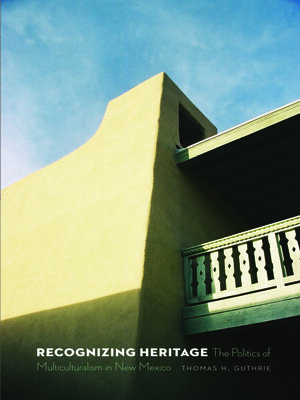
Sign up to save your library
With an OverDrive account, you can save your favorite libraries for at-a-glance information about availability. Find out more about OverDrive accounts.
Find this title in Libby, the library reading app by OverDrive.



Search for a digital library with this title
Title found at these libraries:
| Library Name | Distance |
|---|---|
| Loading... |
In 2006 Congress established the Northern Rio Grande National Heritage Area to recognize the four-hundred-year "coexistence" of Spanish and Indian peoples in New Mexico and their place in the United States. National heritage areas enable local communities to partner with the federal government to promote historic preservation, cultural conservation, and economic development. Recognizing Heritage explores the social, political, and historical context of this and other public efforts to interpret and preserve Native American and Hispanic heritage in northern New Mexico. The federal government's recognition of New Mexico's cultural distinctiveness contrasts sharply with its earlier efforts to wipe out Indian and Hispanic cultures. Yet even celebrations of cultural difference can reinforce colonial hierarchies. Multiculturalism and colonialism have overlapped in New Mexico since the nineteenth century, when Anglo-American colonists began promoting the region's unique cultures and exotic images to tourists. Thomas H. Guthrie analyzes the relationship between heritage preservation and ongoing struggles over land, water, and identity resulting from American colonization. He uses four sites within the heritage area to illustrate the unintentional colonial effects of multiculturalism: a history and anthropology museum, an Indian art market, a "tricultural" commemorative plaza, and a mountain village famous for its adobe architecture. Recognizing Heritage critiques the politics of recognition and suggests steps toward a more just multiculturalism that fundamentally challenges colonial inequalities.







